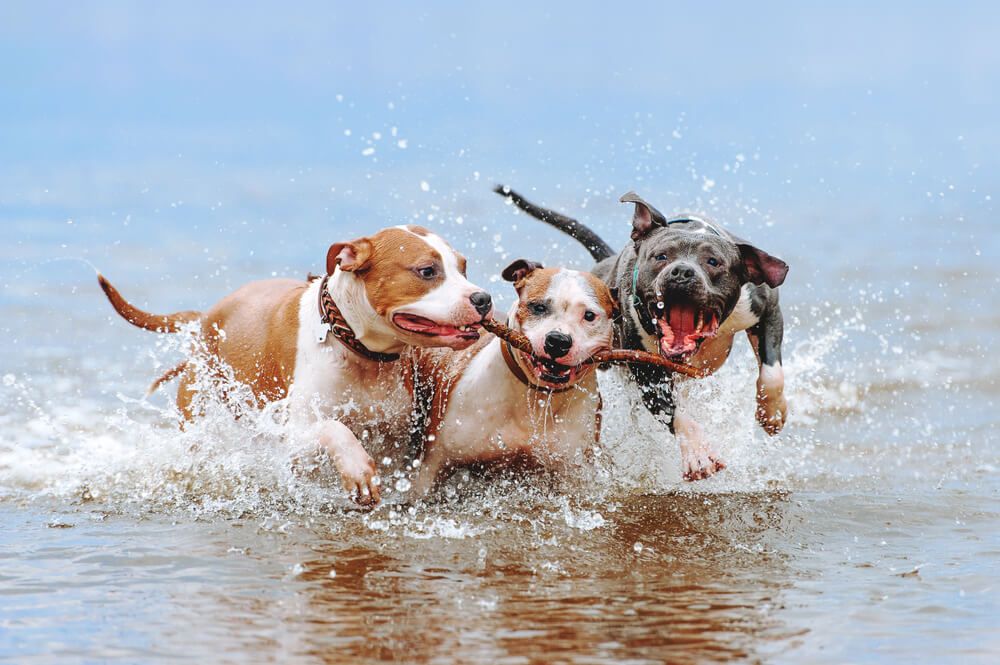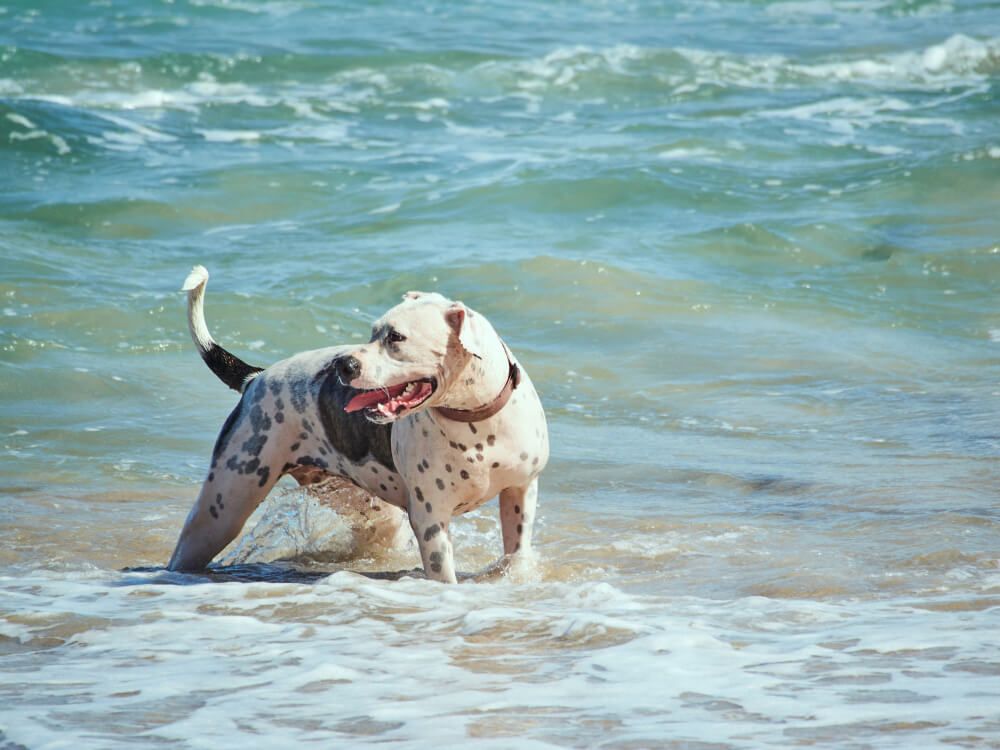Hey Ollie blog readers! We’re offering you an exclusive 60% OFF your starter box! Try now!
If you’re thinking about taking your dog to the beach, you might be worried about what happens if your dog decides to take a taste of the sand or salty water. While a mouth full of sand probably won’t feel so great, some dogs think the ocean is a deluxe water bowl. So, do you need to prevent them from drinking ocean water? Learn what to do to keep your dog safe around the sea.
My dog drank saltwater from the ocean!
If your dog just took a little taste (and decided it was pretty gross) you’re probably in the clear. But, it doesn’t take much salt water to cause some stomach upset and diarrhea. So, if you did see your pup take a sip (or three) keep an eye on them and watch for runny stool or diarrhea/vomiting.
If you’re worried, you can always give your vet’s office a call for further instruction. They can provide guidance based on your pup’s size, medical history, and how much water you think your pup might have swallowed.

What is saltwater poisoning in dogs? What are the symptoms?
If you are a little concerned about your dog using the ocean as their water bowl, it’s for good reason. Too much salty water can actually make your dog sick. Saltwater poisoning is something that you need to watch out for.
The American Kennel Club says, “When too much salt builds up in a dog’s body, their cells release their water content to try and balance out the sodium disparity. This, in turn, causes a litany of serious health effects. It can cause seizures, a loss of brain cells, injury to the kidneys, and severe dehydration. If a dog with saltwater poisoning isn’t treated medically, the condition can easily lead to death.”
Symptoms of saltwater poisoning:
- Diarrhea
- Muscle tremors
- Seizures
If you have been around salt water and see any of these symptoms in your pet, call the vet right away. Even if it is only some diarrhea – better to be safe than sorry.
How to Treat Salt Water Poisoning
If your pup has salt water poisoning, your vet will work on restoring your pet’s water and electrolyte levels. This needs to be done strategically so that your dog’s sodium levels don’t drop too quickly, leading to potential complications. The most common of these would be cerebral edema, or water on the brain.
The vet will most likely need to treat your dog with intravenous fluid for a period of 2-3 days. During this time your dog will be monitored for complications like brain swelling, seizures, and kidney issues.
How to prevent your dog from drinking sea water
To prevent your dog from getting saltwater poisnoning, you will want to prevent them from drinking from the ocean or sea. A few tips for this include:
- Ensuring your dog always has access to fresh water
- Taking swimming breaks so your dog doesn’t have time to drink too much
- Restrict access to the water if you notice your pup is drinking it
- Supervise your pup closely when at the beach
Having fun with your dog at the beach is one of the many joys of pet ownership. It is important that you and your pup enjoy safely – and this means avoiding saltwater poisoning.
The Ollie blog is devoted to helping pet parents lead healthier lives with their pups. If you want to learn more about our fresh, human-grade food, check out MyOllie.com.
Tagged As:

The nutrition your dog needs,
the food they want.

Enjoying our articles? Subscribe our Newsletters and get new articles directly to your inbox
You might also like
13 May 2025
8 MINS READ
Puppy Training Guide & Behavior Timeline
Bringing home a puppy is pure magic. It’s also pure chaos—tiny teeth, zoomies, accidents in the house, and moments that make you wonder if you’re raising a future genius or a tiny tornado. …
by Ollie Pets
10 May 2025
12 MINS READ
New Puppy Checklist: Guide To Prepare For A New Dog
Bringing home a new puppy? This checklist covers everything new dog owners need—from essential supplies to training, feeding, and first vet visits.
by Ollie Pets
3 April 2025
9 MINS READ
Home Remedies for Fleas on Dogs: 10 Natural Ways That Actually Work
Wondering what kills fleas on dogs instantly and naturally? If your pup is scratching like crazy, it may be time to take action. In this guide, we’ll show you the most effective home remedies for…







